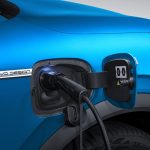
Nothing is stopping Meta CEO Mark Zuckerberg from building a nuclear artificial intelligence (AI) data center—besides bees. As the Financial Times first reported, the tech giant was interrupted mid-process of a deal when a rare bee species was discovered at the construction site. The presence of these pollinators raised environmental concerns, leading the company to halt the project.
Bees vs. Big Tech
Meta aimed to secure emissions-free electricity for the data center by negotiating a deal with an existing nuclear power plant. This initiative was part of the company’s strategy of feeding its rising AI power demands.
Zuckerberg expressed frustration during a recent company-wide meeting. If the deal had proceeded, Meta would have been the first Big Tech company to use nuclear-powered AI with the largest data center plant in the world.
Bees play a crucial role in natural ecosystems. Their presence on the site presents significant environmental concerns greater than Meta’s ambitions. In adherence to environmental regulations and ethical obligations, Meta chose not to proceed with the project.
The AI Nuclear Power Race
This setback shows the tension between technological advancements and environmental preservation. The halted project was intended to support Meta’s new and ongoing AI initiatives, which require far more power than traditional data center operations. AI models consume massive amounts of energy; a single prompt on an advanced AI model can use up to ten times the energy of a standard Google search.
“Our compute needs outstrip our available data center capacity right now,” Meta CFO Susan Li recently stated in an earnings call last July. As Meta’s spending on servers and data centers keeps increasing, Zuckerberg’s big bet on AI faces pressure from investors.
Meta is not alone in pursuing nuclear power for its AI infrastructure. Rivals like Microsoft and Google have also made significant investments in nuclear energy. Microsoft recently announced plans to revive the Three Mile Island nuclear plant in Pennsylvania. Meanwhile, Google is getting its hands on small modular reactors from Kairos Power.
Despite these developments, the U.S. still lags behind countries like China. Due to China’s state support and funding, the U.S. is 15 years behind China in advanced nuclear power development.
Zuckerberg’s roadblock represents tech companies’ challenges in securing reliable, carbon-free power for their data centers. This endeavor usually comes with regulatory hurdles, high initial costs, and concerns over waste management.
Amazon faced similar challenges. The Federal Energy Regulatory Commission (FERC) recently blocked its request to increase its power draw from Pennsylvania’s Susquehanna nuclear plant, citing grid reliability issues. However, the company has already invested in small modular reactors as part of its long-term energy strategy.
As of now, Meta continues to explore other carbon-neutral energy sources for its AI projects. The company remains committed to its net-zero emissions pledge, which it achieved in 2020.




















